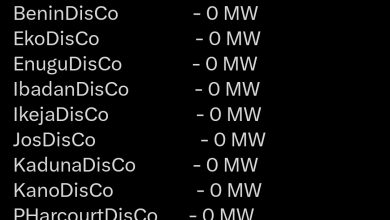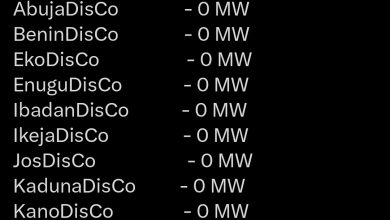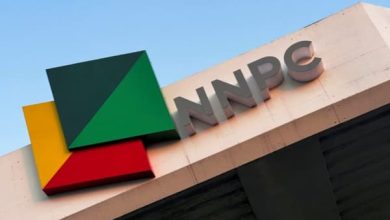
By Dr. Mrs. Amaka N. Unamma
Taxation and or Business Taxation is an undergraduate course which interjects sometimes with Accounting as a discipline in higher institutions of learning.
It is a discipline which typically lasts between 4 to 5 years within which a candidate proceeds for internship in either an Accounting or Taxation industry, of which later, he/she is issued a degree or equivalent certificate.
It is available in some institutions either as a full time, part time, evening, weekend and even online course as approved by the appropriate regulatory bodies.
The options are flexible in order to enable prospective candidates to attend to their respective schedules elsewhere and still attain their desired academic and professional goals. The tuition fee has always been affordable as it has usually been the same as obtained in the other courses offered in the institutions .
The entry requirement for admission to either one hundred (100) level or two hundred (200) level has been 5 credit passes at O’level in not more than two sittings, including English, Mathematics, Economics and any other two subjects. In the alternative, a candidate is to have direct entry admission with O’level certificate, OND or degree in any other discipline and of which A level subjects with not less than 3 points may also be considered.
Business Taxation is an essential part of any developed or developing society which Nigeria is inclusive since it provides revenue and serves as source of income for the implementation of essential government projects, services and further keep the government running efficiently.
Taxation as a course of study makes one to understand tax rules, laws, and regulations in any society and be able to make well informed decisions about his/her own money which is an important component of meeting someone’s financial responsibilities or duties anywhere and anytime.
It is obvious that someone who does not understand clearly tax laws and regulations and how to collect taxes to favour government economic, educational, political, social, and cultural policies will not be able to file tax returns, plan for future investments, or even grasp issues concerning deductions and exemptions from tax payments.
It is the students who study taxation as a course that understands better the social and economic effects of taxing people and would go further to direct government on how to use taxes as a tool for advancing the social welfare of the people engaged in money generation that will benefit her people and maintain economic stability among the people no matter the background.
It is the students who put interest in studying taxation that equips themselves more with the knowledge and skill of how to effectively collect tax Revenues that will enable the government to grow the economy through providing public or private goods and services and establishment of social infrastructure which helps to reduce poverty as well as grow the economy.
When such knowledge and skills are appropriately applied and are positively reflected with their effects on the culture and economy it ensures growth and stabilization of a nation.
The most important thing today is that many professional doors for job will be opened for students who study Taxation/Business Taxation from the Polytechnics, Colleges and Universities.
By now we should have realized as a way of preempting His Excellency, President Bola Tinubu, that by trying to establish the Nigerian Revenue Services Agency, that both government and the business sector have a significant need for skilled tax specialists who will help them to successfully traverse the nuances of tax planning, collection and optimization in Nigeria.
It implies then that studying Taxation as a course will improve the chances of Nigerian youths finding work as Audit/Tax Managers, Tax Inspectors, Tax Consultants, Tax lawyers, Financial Analysts, Policy advisers, which will not only pay well, but will also provide them the chance of making positive impact on the tax system of the nation as a whole.
This is because apart from providing employment opportunities for them, they will be happy with their government, themselves and the nation when infrastructural facilities are assured.
As some workers are retiring from the Federal Board of Inland Revenue, State Inland Revenue Board; Local Government Revenue Authorities; Government Revenue Authorities; Telecommunication Companies; Pension related companies, Internet/GSM Service providers agencies, departments of taxation of Polytechnics, Universities; all financial institutions such as banks, insurance Nigerian custom service companies and even , Ports Authority; etcetera, it is the students who studied taxation that will most likely replace them.
Studying Taxation/Business Taxation as it is called in United Kingdom and United States of America not only help the students in real world situation, to advance their careers within and outside Nigeria, it also helps them to develop their analytical, problem solving, logical and critical thinking abilities.
Developing in the students such creative thinking abilities through the taxation course will thus make them to be relevant in many fields and also stand as a good investment for their future performance in any part of the world.
There is no doubt that for a student to understand the tax laws very well, he/she requires the ability to analyze numbers and be able to make sound decisions.
One of the top five courses usually sought for in United Kingdom and United States for students to study is Business Taxation.
Our higher institutions have a great role to play with their curriculum in educating the taxation students to embrace and negotiate the complexity of the tax system, and make positive contributions to our society by providing them with a thorough grasp of Taxation/Business Taxation as a course apart from making outstanding impact to national development or even beyond.
It is expected that the Taxation students in Nigerian institutions who wants to further their education career abroad must be sufficiently groomed in the following career-advancing topics:
The pervasive impact of taxation on business operations, planning, tax strategy and tax compliance, pCorporate taxation, partnership taxation and tax accounting
Foundational and advanced tax topic in the areas like tax research, tax law, policy, practice, ethics, state and local taxation, personal taxation and indirect taxation including international taxation, merger and acquisition transactions. Emerging tax technologies and professional standards.
Impact of e-business on the business value chain.
Tax dispute resolution, tax legislation and tax treaties.On graduation, the taxation students are qualified to register with their professional associations within or outside the country. The chartered Institute of Taxation of Nigeria (CITN) is an Association of Tax Administration and Practitioners in Nigeria.
The CITN promotes professional ethics in tax, efficiency in tax administration and practices in Nigeria.
It is a professional body with authority to regulate Tax Practices and Administration in Nigeria. In Nigeria, 2 Polytechnics namely; Federal Polytechnic Nekede and Federal Polytechnic Ilaro offer Taxation as an undergraduate course,
Seven Universities in the Southern geo-political region of the country, while six Universities in the Northern geo-political region of the country offer taxation as an undergraduate course.
In United Kingdom and United States of America over 14 Universities offer Taxation as an undergraduate course.
Through this medium therefore parents and their wards all over Nigeria are being encouraged to see this course Taxation/Business Taxation as a veritable area to explore as the country is presently undergoing an economic reform. Let our children hurry now to any of these institutions to register for the course as the admission process is on going for 2024/2025 academic session.
Provisions are made for a candidate to change course for whoever is interested provided the student meets the required O’Level entry requirement.






